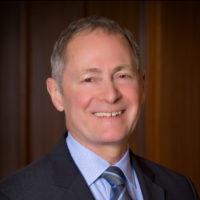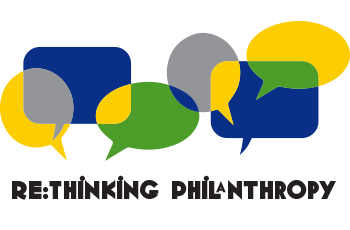This month’s blog post was written by David Biemesderfer, President & CEO of the Forum of Regional Associations of Grantmakers. It was originally published on the Forum’s blog on February 16th, 2017 and is republished here with permission.
For a long time I have been aware of the important role played by regional and national philanthropy-serving organizations (PSOs)—the networks and associations that comprise the Forum’s membership—to inform foundations about philanthropic practice. That role is reaffirmed in a newly released research study by the William and Flora Hewlett Foundation that is a first-of-its-kind study of how U.S. foundations access and use knowledge about effective philanthropy.
The research involved a field scan that focused on practice knowledge, which is defined as anything about the effective practice of philanthropy irrespective of the programmatic issues that are the goals of most grantmaking. The research included interviews with staff and board members from 75 foundations, an online survey of foundation professionals that had 738 respondents, four in-depth case studies, and a literature review.
A key finding of the study is that foundations’ most trusted source of information and knowledge about philanthropic practice is their peers, and PSOs play an important role in this regard. Interviewees said they often rely on formal funder networks at the local, regional and national level to connect and interact with their peers to gather knowledge. In particular, the Forum’s member regional grantmaker associations were cited frequently by foundations in interviews and surveys as an important point of peer-to-peer connection and interaction. According to the report:
Notably, the smaller the foundation, the greater the value the funder placed on regional associations for gathering practice knowledge. In addition to helping funders connect with one another, the regional associations play an important intermediary role in disseminating practice knowledge from the national level that may not always reach the smaller foundations that are regional in scope, have few staff, or have limited travel budgets. Regional associations can offer a more tailored experience and often provide a space for individuals from smaller and regionally focused foundations to have the in-person interaction with peers that is so essential to the spread of new ideas and practices.
That’s a great distillation of one of the most vital roles of regional associations. The Forum plays an important role, too, to disseminate practice knowledge between the regional and national PSOs in our growing nationwide network, which now represents more than 7,000 primarily philanthropic organizations. It is an incredibly vibrant and efficient way to spread knowledge deep into the philanthropy sector.
After peer and colleague interactions, the most preferred ways for funders to gather practice knowledge is through conferences and emails/newsletters, according to the study, primarily those that are presented or published by regional and national PSOs. Despite all the technology available to us today, people still value the in-person connections for gathering knowledge, and in-person conferences and convenings are a core component of most PSOs’ work. Some interviewees talked about the difficulty of dealing with the “fire hose of information” coming at them from their email inbox, with ignore/delete being a common response out of necessity. The study also revealed that fewer than a quarter of foundation staff and board members responding to the survey prefer social media as a method for gathering knowledge.
Another key finding from the Hewlett study: regional and national PSOs are some of the most common sources that funders turn to for practice knowledge. Regional grantmaker associations are one of just three organizations where more than 80% of respondents said they were familiar with their knowledge content, with another group being Forum member Grantmakers for Effective Organizations (GEO). The study revealed that regional PSOs are also among the top 10 knowledge providers on foundations’ radar, along with a number of national PSOs—including Forum members GEO and The Center for Effective Philanthropy.
The study also affirms the central role that regional and national PSOs play in leading foundations to change their practice to be more effective and have greater impact with their philanthropy. Nearly three-quarters of survey respondents said they have adopted, or are considering adopting, an idea or best practice during the past two years. When this group was asked an open-ended question to identify the source of practice knowledge that contributed to that change, the top response was a funder network (mentioned by 28% of respondents), followed by peers and colleagues.
There are many other findings in the study that would be of interest to anyone wanting to gain a better understanding of how funders gather, vet and use knowledge to be more effective with their philanthropic practice. You can read a short summary of the findings, download the full report and read the Hewlett Foundation’s reflections on the findings and implications for its work in an SSIR blog post.
If you’re a funder interested in accessing the best practice knowledge to inform your work and aren’t familiar with your regional philanthropy association, you can find your nearest regional association here. I also encourage you to get to know the Forum’s national PSO members, who are great sources of knowledge for the issues, populations and areas of practice that funders care about the most.
About the Author

David Biemesderfer is a President and CEO of the Forum of Regional Associations of Grantmakers, a role he began in January 2016. Based in Washington, DC, the Forum is a national network of 33 regional philanthropy associations representing 5,500 organizations, making it the largest network serving philanthropy in America. The Forum is currently embarking on a new vision to create an expanded network of regional and national philanthropy-serving organizations; being the place where philanthropy’s infrastructure comes together.
David has worked in the philanthropy sector for more than 20 years. Prior to his role at the Forum, David served as President and CEO of Florida Philanthropic Network (FPN), a statewide network of philanthropic organizations working to strengthen and grow philanthropy in Florida. He joined FPN in 2009 as Vice President and served as FPN’s President & CEO starting in June 2010. Under David’s leadership, FPN’s membership grew sevenfold, its budget grew fourfold and its statewide presence increased significantly. He served on the Forum’s Board of Directors for six years.
David’s past experience also includes working for 10 years at the Minnesota Council on Foundations (MCF). He left MCF in 2004 as its Vice President of Communications and Information Services. David has also served as a consultant for a variety of foundations and other philanthropic clients in the areas of communications, public policy and accountability.
David has a bachelor’s degree in communications from Gustavus Adolphus College and a master’s degree in business administration from the University of Minnesota.


Post a comment